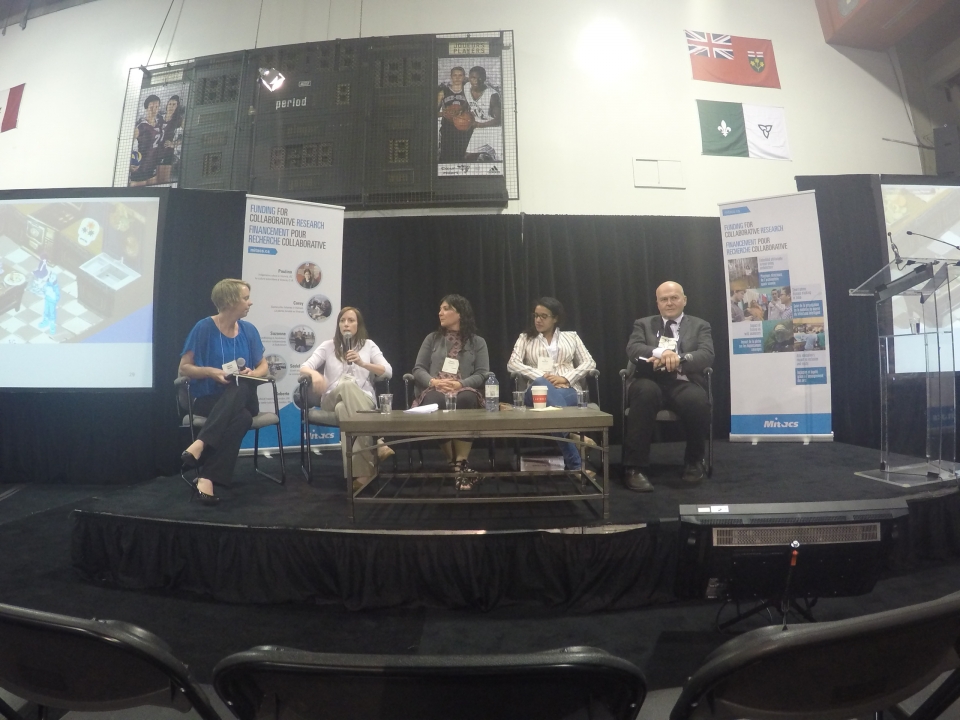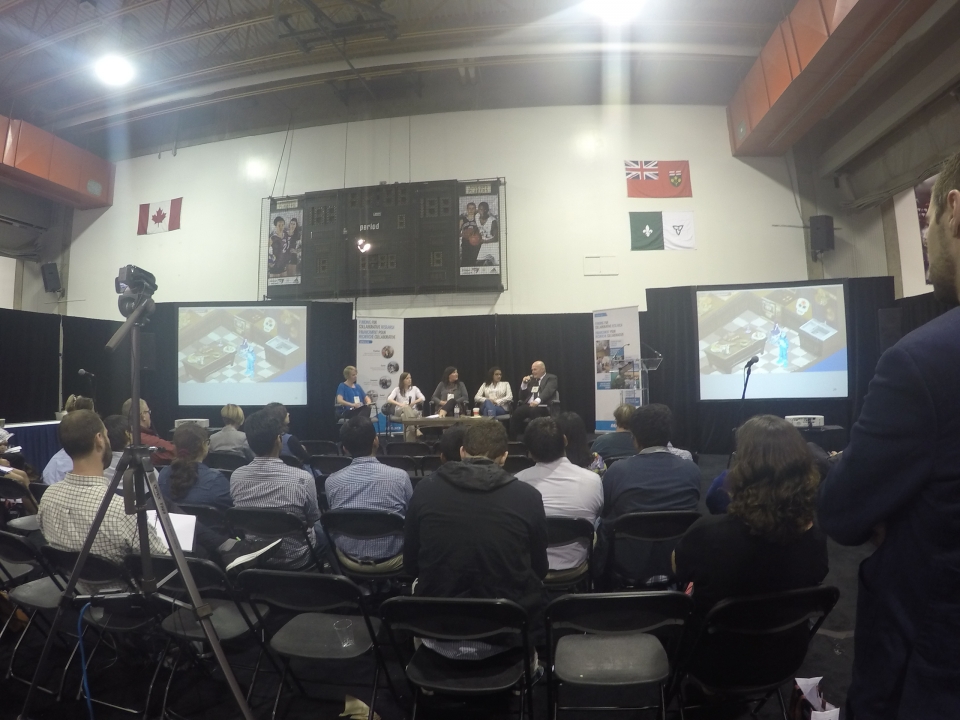During a Congress 2015 panel titled "Capitalizing on research: from Idea to Impact", Mitacs presented an interesting perspective on collaboration between researchers, industry, government and community. Through its internship programs, Mitacs supports applied research in partnership with universities, industry and various levels of government, strengthening connections between these sectors to stimulate innovation and create jobs. In this panel, speakers focused on the impact of this kind of research-based innovation on society.
The panelists for the session were Renee Jackson, Teresa Branch-Smith, Philip Beesly and Angelique Manella. Speakers provided examples of research projects that were able to achieve important social impacts.
Phillip Beesly, CEO of Phillip Beesly Architect Inc. mentioned, “There is a possibility of a renewed relationship with the environment and people through research and collaboration. Through these means, we are able to build a new architecture which has bigger impacts in our society.”
Teresa Branch, who has a background in biochemistry and philosophy, and is a former research associate with Phillip Beesly Architect Inc., touched upon four important aspects: Acceleration, Evaluation, Creation and Research. According to her, these four themes are important pillars for any research, and that it is necessary to build collaboration between people and academia to address common social challenges through research.
Renee, a PhD candidate at Concordia University, and Angelique, CEO of Decode Global, a video game company in Toronto, addressed the audience together. Renee demonstrated one of Decode Global’s video games called “Get Water”, in which a girl from Asia must perform certain tasks to transport water from one place to another.
“These kinds of games are aimed at raising awareness about various challenges facing people in different parts of the world,” shared Renee. “The purpose of these games is to bring social change and to have a real-life impact. The games inform people about diverse challenges such as obesity, poverty, terrorism and mental health.”
“Engaging youth in the creation of technology is very important,” said Angelique. “Students were invited from various universities to create ideas for the game together.” According to Renee, “Engaging youth may spark their interest in doing further research on such social issues and, more importantly, in changing their behavior, which may have an even bigger social impact”.
Phillip said that he is excited to build a new cultural economy through research and collaboration, and make a product that is both economically viable and socially transformative.
Dr. Alejandro Adem, CEO of Mitacs closed the session by emphasizing, “Great ideas, collaboration and entrepreneurship don’t belong to only one type of knowledge. We get stronger by being creative, and through the power of ideas.


